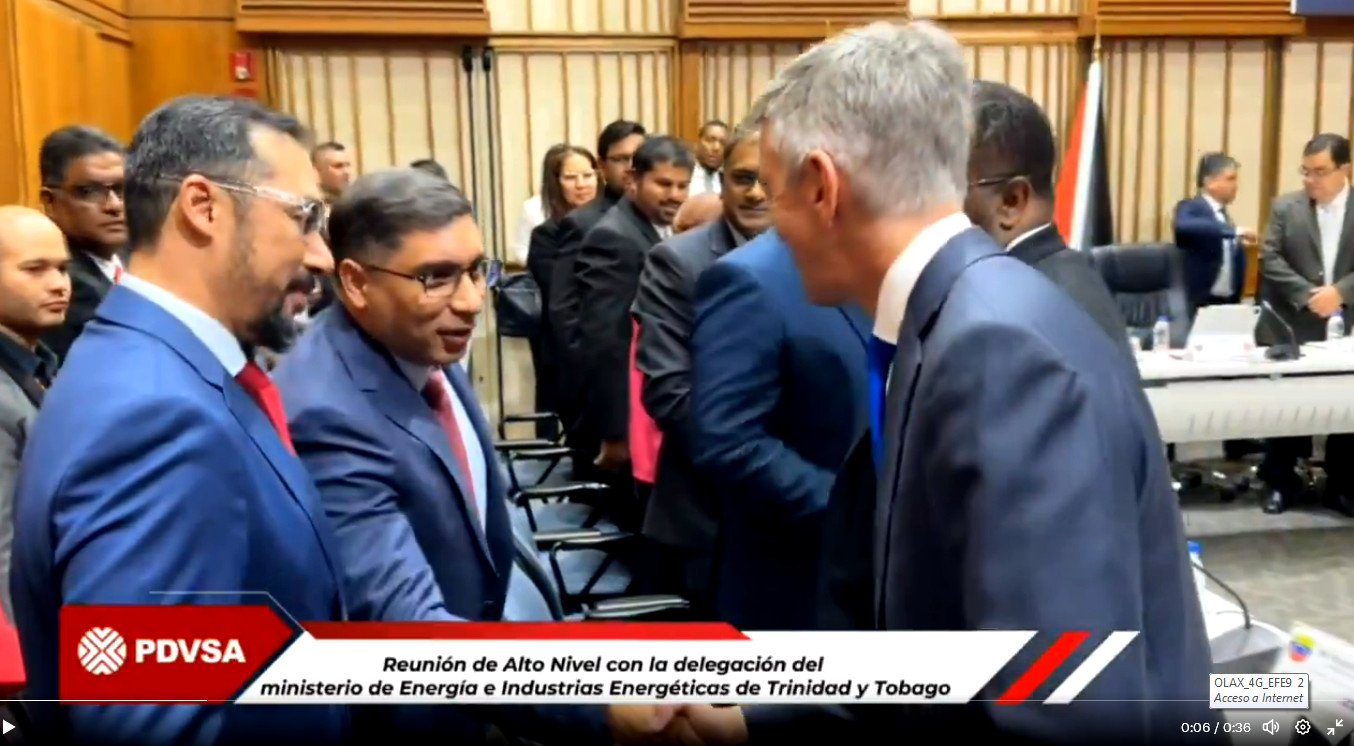BP and Trinidad receive OFAC license for new Venezuela project
Meeting in March 2024 in Caracas: Trinidadian energy minister Stuart Young (left), Venezuelan oil minister Rafael Tellechea (middle), and BP president for Trinidad and Tobago, Sir David Campbell (right).
Trinidad and Tobago received a “specific license” from the US Treasury’s OFAC to develop a new gas project in Cocuina-Manakin field. The offshore reservoir is shared between the island nation and Venezuela and involves BP and Trinidad’s National Gas Company.
Trinidadian Energy Minister Stuart Young announced this on social media on Wednesday. Earlier this month, BP said that talks on this project were halted.
The OFAC is granting specific licenses to energy companies as exceptions to oil sanctions imposed on Venezuela in 2019, after putting an end to General License 44 this April.
The announcement’s significance is that it is for a brand-new project. Most analysts expected that only firms with previously existing agreements in Venezuela would be granted authorisations under the new OFAC scheme. However, BP and NGC are being allowed to pursue plans for a fresh, long-term venture.
It can be implied that negotiations between Washington DC and Caracas are therefore progressing. The Biden administration has been using sanctions relief as a way to obtain concessions from President Nicolas Maduro, who heads to the polls in July.
In March, Young met with BP Trinidad president Sir David Campbell and Venezuelan Oil Minister Rafael Tellechea to discuss developing Cocuina-Manakin. PDVSA had previously approached Shell and Chevron as well as BP to work on the offshore field, which contains an estimated 1 trillion cubic feet (tcf) of natural gas.
The project involving BP would be similar to that already started by Shell. In December, the latter signed a deal with NGC and Venezuela to exploit Dragon, another field in offshore waters.
Shell’s 2023 license lasts until October 2025 and allows payments to be made to the Venezuelan state in US dollars. The British corporation recently asked for a 15-year extension, arguing that natural gas projects are inherently long-term, and it needs assurances before making the final investment decision for $1bn.
Given that fully developing offshore natural gas fields takes years, the decision to authorise BP and NGC does not involve concerns about energy prices in the short term.
The new contractual framework for this type of deal is also innovative for Venezuela. The British corporations and NGC would have operational control, paying royalties and taxes to the South American country, but not directly involving state-owned oil firm PDVSA.
Aligned interests
Venezuela’s abundant reserves of non-associated natural gas are largely unexploited, as oil has taken precedence in the last century. The country still harbours about 220 tcf of gas, which is 77% of the total found in Latin America.
Since it was hit by economic and financial sanctions from the US, Venezuela has been trying to diversify its exports beyond oil. Luckily, neighbouring Colombia and Trinidad overestimated their own gas reserves, meaning that Venezuela could become a reliable supplier for both.
Colombia’s Ecopetrol recently announced that it also submitted a bid for an OFAC authorisation, so that it can complete a pipeline and import gas from Venezuela.
Meanwhile, Trinidad has a strong infrastructure to process and export gas, as well as an industry that relies on it—such as steel. The island nation planned to become a hub harnessing vast offshore reserves, that are proving harder to access.
In comments made to Reuters, Young said that Shell, NGC and Venezuela are also looking into Loran-Manatee, another offshore natural gas field, with about 10 tcf.
Europe is also focusing its attention on Venezuela after Russia’s invasion of Ukraine in February 2022. Eni, Repsol, and Maurel et Prom started receiving comfort letters in 2022; the last two have now secured specific licenses under the new scheme.

